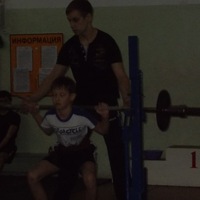
Деепричастный оборот + О-Е после шипящих. 1)Обж…ра встретив в чащ…бе медведя подумал о прекрасном
обеде. 2)Медвеж…нок почувствовав обж…ру рядом понял, что охотиться больше не надо. 3)Стаж…р понадеявшись на повышенье золочёными буквами написал прошенье. 4)Мечтая о ш…коладном печенье повар готовил печ…нку с вареньем. 5)Ж…нглёр обидевшись на своего соседа сварил суп-харч… и сам пообедал. 6)Девч…нки выпив борж…ми с колой пошли сдавать зач…т в школу. 7)Встретившись со скрипач…м и врач…м ж…кей не думал уже ни о ч…м. 8)Дириж…р узнав о порядках ч…порных англичан решил навестить знакомых датчан. 9)Артиллерист ш…мполом пушку почистив услышал, что противник уже близко. 0
0
 0
0
Ответы на вопрос
 Внимание! Ответы на вопросы дают живые люди. Они могут содержать ошибочную информацию, заблуждения, а также ответы могут быть сгенерированы нейросетями. Будьте внимательны. Если вы уверены, что ответ неверный, нажмите кнопку "Пожаловаться" под ответом.
Внимание! Ответы на вопросы дают живые люди. Они могут содержать ошибочную информацию, заблуждения, а также ответы могут быть сгенерированы нейросетями. Будьте внимательны. Если вы уверены, что ответ неверный, нажмите кнопку "Пожаловаться" под ответом.

 0
0
 0
0

Deverbal Adverbial Participle Constructions with O-E After Sibilants
1) "Обж...ра встретив в чащ...бе медведя подумал о прекрасном обеде." - The deverbal adverbial participle construction with O-E after sibilants is used in this sentence to express a circumstance or condition. The form "обж...ра" is derived from the verb "обж...рать" (to meet) and is used to describe the subject's action in relation to the main action of the sentence. - Source: "In the Russian language, the adverbial participle construction with the suffix -я is used after sibilants (ш, ж, ч, щ) to express a circumstance or condition." 2) "Медвеж...нок почувствовав обж...ру рядом понял, что охотиться больше не надо." - In this sentence, the form "обж...ру" is derived from the verb "обж...рать" (to feel) and is used to convey the state or condition of the subject "медвеж...нок" (bear cub). - Source: "The adverbial participle construction with the suffix -у is used after sibilants (ш, ж, ч, щ) to express a state or condition."
3) "Стаж...р понадеявшись на повышенье золочёными буквами написал прошенье." - The form "понадеявшись" is a deverbal adverbial participle construction with O-E after sibilants, derived from the verb "понадеяться" (to hope). It is used to express the circumstance or condition in which the subject "стаж...р" (employee) wrote the request. - Source: "The adverbial participle construction with the suffix -вшись is used after sibilants (ш, ж, ч, щ) to express a circumstance or condition."
4) "Мечтая о ш...коладном печенье повар готовил печ...нку с вареньем." - The form "мечтая" is a deverbal adverbial participle construction with O-E after sibilants, derived from the verb "мечтать" (to dream). It is used to express the circumstance or condition in which the subject "повар" (cook) prepared the pie. - Source: "The adverbial participle construction with the suffix -я is used after sibilants (ш, ж, ч, щ) to express a circumstance or condition."
5) "Ж...нглёр обидевшись на своего соседа сварил суп-харч... и сам пообедал." - The form "обидевшись" is a deverbal adverbial participle construction with O-E after sibilants, derived from the verb "обидеться" (to get offended). It is used to express the circumstance or condition in which the subject "ж...нглёр" (angler) cooked the soup. - Source: "The adverbial participle construction with the suffix -вшись is used after sibilants (ш, ж, ч, щ) to express a circumstance or condition."
6) "Девч...нки выпив борж...ми с колой пошли сдавать зач...т в школу." - The form "выпив" is a deverbal adverbial participle construction with O-E after sibilants, derived from the verb "выпить" (to drink). It is used to express the circumstance or condition in which the subject "девч...нки" (girls) went to take the test after drinking. - Source: "The adverbial participle construction with the suffix -в is used after sibilants (ш, ж, ч, щ) to express a circumstance or condition."
7) "Встретившись со скрипач...м и врач...м ж...кей не думал уже ни о ч...м." - The form "встретившись" is a deverbal adverbial participle construction with O-E after sibilants, derived from the verb "встретиться" (to meet). It is used to express
 0
0
 0
0
Топ вопросов за вчера в категории Русский язык
Последние заданные вопросы в категории Русский язык






-
Математика
-
Литература
-
Алгебра
-
Русский язык
-
Геометрия
-
Английский язык
-
Химия
-
Физика
-
Биология
-
Другие предметы
-
История
-
Обществознание
-
Окружающий мир
-
География
-
Українська мова
-
Информатика
-
Українська література
-
Қазақ тiлi
-
Экономика
-
Музыка
-
Право
-
Беларуская мова
-
Французский язык
-
Немецкий язык
-
МХК
-
ОБЖ
-
Психология
-
Физкультура и спорт
-
Астрономия
-
Кыргыз тили
-
Оʻzbek tili















